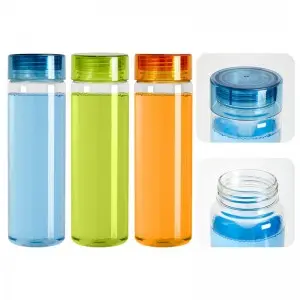We often hear the word “recycling” and think of it as an important step in curbing plastic pollution. In recent years, the issue of plastic waste has received increasing attention, urging us to take responsibility for our actions. The most common type of plastic waste is plastic bottles, which often end up in landfill or as trash. However, through recycling, these bottles can be given new life. Today, we’re going to take a deep dive into the process and meaning of recycling plastic bottles, exploring what really happens after recycling.
1. Classified collection
The plastic bottle recycling journey begins when plastic bottles are properly sorted by material type. This contributes to better recovery rates. The most commonly used bottle plastic is polyethylene terephthalate (PET). As a result, facilities ensure that PET bottles are separated from other types of plastic, such as high-density polyethylene (HDPE). Once the sorting is complete, the bottles are collected and ready for the next stage.
2. Shred and wash
To prepare the bottles for the recycling process, the bottles are first shredded and then washed to remove residue and labels. Immersing the plastic pieces in the solution helps to remove any impurities, making the material ready for further processing. This washing process also contributes to a cleaner end product.
3. Conversion into plastic flakes or pellets
After washing, broken plastic bottles are converted into plastic flakes or granules by various methods. Plastic flakes or pellets can be used as raw materials for the manufacture of various new products. For example, they can be transformed into polyester fibers used in textile manufacturing or molded into new plastic bottles. The versatility of recycled plastics allows them to be used in a variety of industries, including construction, automotive and packaging.
4. Reuse and subsequent life cycle
Recycled plastic bottles have multiple uses in different fields. In the construction industry, they can be incorporated into building materials such as roof tiles, insulation and pipes. The automotive industry also benefits greatly when using recycled plastic bottles to produce car parts. Not only does this reduce the need for virgin plastic, it also helps reduce greenhouse gas emissions.
In the packaging industry, recycled plastic bottles can be converted into new bottles, reducing reliance on virgin plastic production. Additionally, the textile industry utilizes recycled plastic bottles to produce polyester fabrics as well as clothing and accessories materials. By incorporating recycled materials into these areas, we actively mitigate the environmental impact associated with plastic production and waste.
5. Environmental impact
Recycling plastic bottles has many environmental benefits. First, it saves energy. Producing new plastic from scratch requires a lot of energy compared to recycling plastic bottles. By recycling one ton of plastic, we save energy consumption equivalent to approximately 1,500 liters of petrol.
Second, recycling reduces the consumption of fossil fuels. By using recycled plastic, we reduce the need for new plastic production and ultimately reduce the extraction and consumption of fossil fuels used in the plastic manufacturing process.
Third, recycling plastic bottles reduces the pressure on natural resources. With every bottle recycled, we save raw materials like oil, gas and water. Plus, recycling helps reduce the burden on landfills, since plastic bottles can take hundreds of years to decompose.
Understanding the journey of recycling plastic bottles helps to understand the positive impact of recycling on the environment. By sorting, cleaning and processing plastic bottles, we facilitate their transformation into new products, ultimately reducing the amount of plastic waste that ends up polluting our landfills and ecosystems. Viewing recycling as a collective responsibility enables us to make conscientious choices and contribute to a more sustainable future. Let’s remember that every recycled plastic bottle brings us one step closer to a cleaner, greener planet.
Post time: Jul-28-2023
